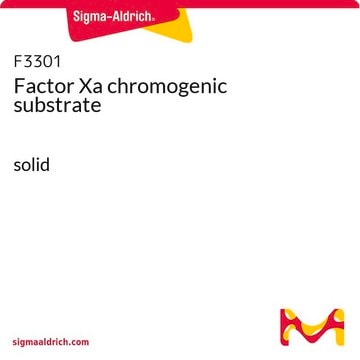SRP6412
BRD2 (1-455) his tag human
recombinant, expressed in E. coli, ≥90% (SDS-PAGE)
Sinónimos:
Bromodomain containing 4, D6S113E, FSH, FSRG1, NAT, RING3, RNF3
About This Item
Productos recomendados
origen biológico
human
recombinante
expressed in E. coli
Ensayo
≥90% (SDS-PAGE)
Formulario
liquid
mol peso
52.8 kDa (478 aa, 1-455 aa + His Tag)
envase
pkg of 100 μg
concentración
1 mg/mL
Nº de acceso NCBI
Nº de acceso UniProt
Condiciones de envío
dry ice
temp. de almacenamiento
−70°C
Información sobre el gen
human ... BRD2(6046)
Descripción general
Forma física
Palabra de señalización
Warning
Frases de peligro
Consejos de prudencia
Clasificaciones de peligro
Eye Irrit. 2
Código de clase de almacenamiento
11 - Combustible Solids
Clase de riesgo para el agua (WGK)
WGK 3
Punto de inflamabilidad (°F)
Not applicable
Punto de inflamabilidad (°C)
Not applicable
Elija entre una de las versiones más recientes:
Certificados de análisis (COA)
Lo sentimos, en este momento no disponemos de COAs para este producto en línea.
Si necesita más asistencia, póngase en contacto con Atención al cliente
¿Ya tiene este producto?
Encuentre la documentación para los productos que ha comprado recientemente en la Biblioteca de documentos.
Nuestro equipo de científicos tiene experiencia en todas las áreas de investigación: Ciencias de la vida, Ciencia de los materiales, Síntesis química, Cromatografía, Analítica y muchas otras.
Póngase en contacto con el Servicio técnico







